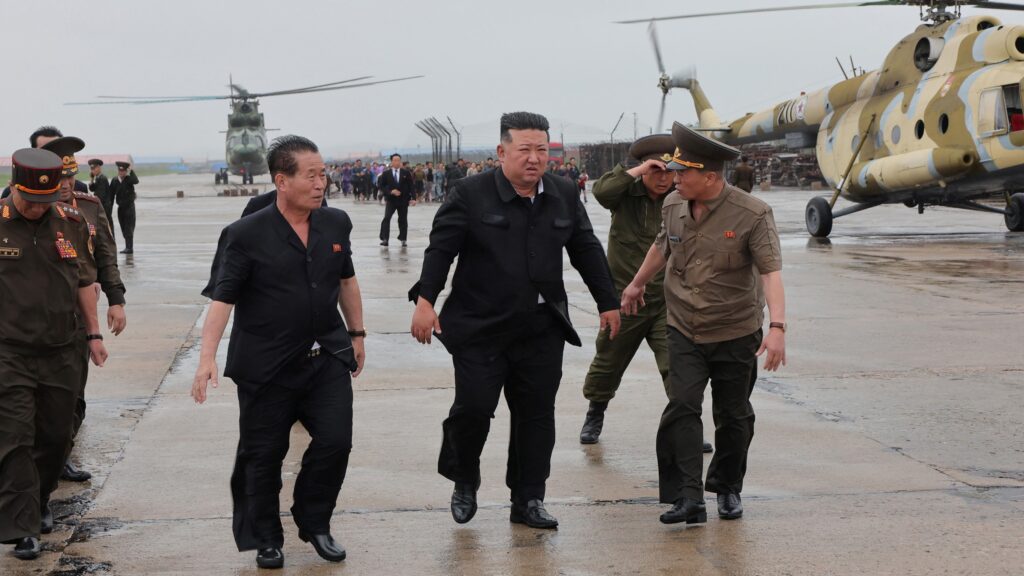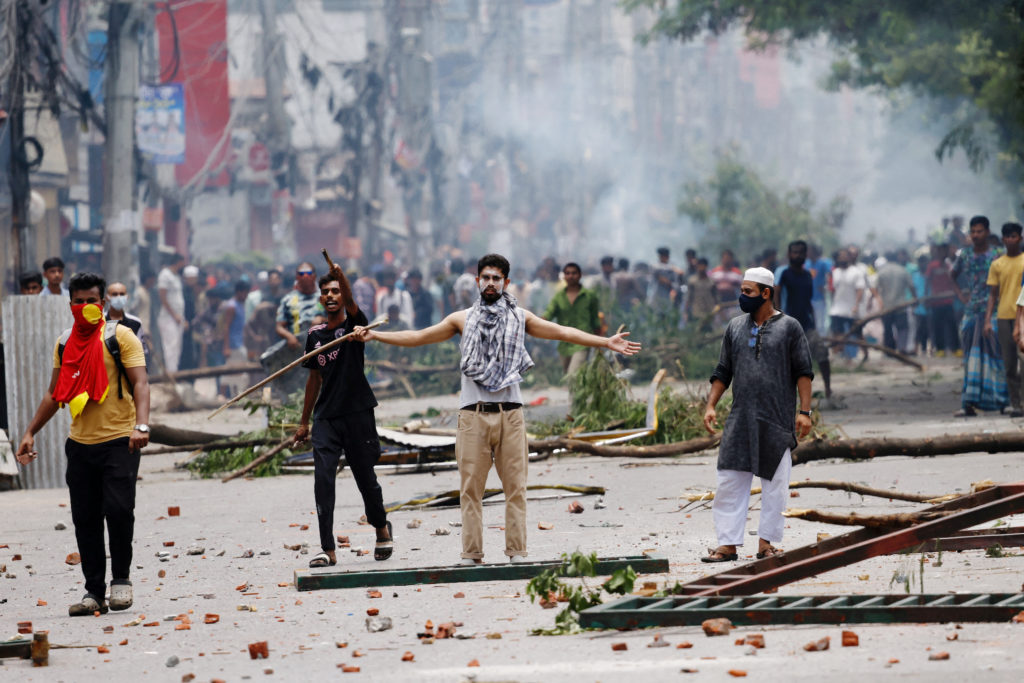On Thursday, South Korea offered to send humanitarian aid to North Korea after severe floods damaged towns along the North’s western border with China.
North Korea has not yet responded to the offer. If accepted, this could be the first official contact between the two Koreas in several years. In 2020, North Korea cut off all official dialogue with South Korea after the collapse of direct talks between its leader, Kim Jong-un, and former U.S. President Donald Trump.
Recently, North Korea reported severe floods near the estuary where the Yalu River flows into the Yellow Sea. State media said that roads, railways, and more than 4,100 homes were submerged, along with large areas of farmland. Kim Jong-un visited the area and ordered his military to use helicopters to evacuate thousands of villagers trapped by the flooding.
“We offer sincere condolences for North Koreans who have suffered severe damage from torrential rains,” said the South Korean government in a statement on Thursday. “We express our willingness to quickly provide urgently needed items for the victims out of humanitarianism and compatriotic love for the North Korean people.”
The statement added that South Korea was ready for dialogue through the two Korean Red Cross societies to determine the size and other details of the aid. South Korean officials said they were willing to provide food and medicine.
This offer is unusual given the tense relationship between the two countries. Recently, both sides have accused each other of provocations, with North Korea sending balloons loaded with trash across the border, and South Korea responding by blaring K-pop and anti-North Korean propaganda through loudspeakers.
North and South Korea had a rare moment of peace when their leaders met at a border summit in 2018. However, relations soured after meetings between Kim and Trump in 2019 ended without an agreement on North Korea’s nuclear weapons program or easing sanctions. Since then, North Korea has increased its missile tests and cut off contact with the South.
Occasionally, the two Korea have used humanitarian projects, like family reunions, to restore dialogue and ease tensions.

North Korea had to accept foreign aid during a famine in the 1990s that killed millions. Since then, the country has suffered chronic food shortages due to a lack of fuel, fertilizers, and natural disasters like floods and droughts.
In 2020, North Korea suffered extensive flood damage but rejected international aid for fear of bringing in the coronavirus. North Korea also did not respond to South Korea’s offer of dialogue in 2022 to discuss cooperation against the pandemic.
Recently, North Korean state media reported a “grave crisis” and unspecified human casualties caused by floods. Photographs showed entire villages submerged, with only roofs visible. Kim replaced the party chiefs of two border provinces and his minister of public security, blaming them for a “chronic and indifferent attitude toward disaster prevention.”
When Kim took power in 2011 after his father Kim Jong-il’s death, he promised that his people would “never have to tighten their belts again.” However, he has not managed to end the food shortages.
The latest floods hit North Korea as Kim’s government has been working to strengthen his personality cult. Last month, North Korea reported a “fairly good” harvest and required officials to wear chest pins bearing Kim’s image.




